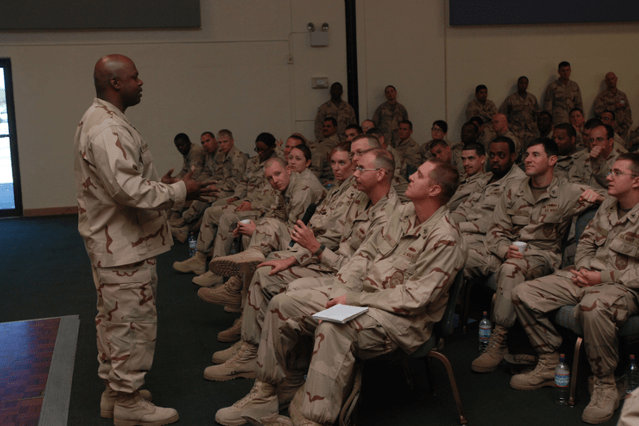On May 7th of 2013, future Commander-in-Chief, Donald Trump, made this statement on Twitter: “26,000 unreported sexual assaults in the military-only 238 convictions. What did these geniuses expect when they put men & women together?” But while Trump may think it’s women who are the sole victims of sexual assault—in actuality, more men than women are victims.

According to GQ, 14,000 men in the military were sexually assaulted in the year 2012 alone, yet this number is likely higher. Exactly how many men are affected is difficult to determine because reports are rarely filed and many neglect men from the conversation about military sexual trauma. In an article posted by the Recovery Ranch, the VA health system reports that 1 in every 100 male veterans have experienced sexual trauma, although, an astonishing 73% of veterans do not use this health system—so the numbers are likely much higher.
In a report published in 2015 by the United States Government Accountability Office, “At most 13 percent of males reported their assaults, whereas at least 40 percent of females reported.” The Department of Defense argues that although more men experience sexual assault in the military, they do not have the same levels of confidence in reporting these incidents. And the reason that many men fail to report these incidents is because many men believe that being a rape victim does not correspond with the identity of a masculine and powerful soldier.

Masculinity and the value of a being “real man” play a huge role in militaristic life, which is why many male veterans do not report incidents of sexual assault. They do not want to be further humiliated by the potential of shame that results from coming forward and many perceived sexual assault as a “women’s issue.” “In a hypermasculine culture, what’s the worst thing that you can do to another man? Force him into what the culture perceives as a feminine role,” states psychologist James Asbrand with GQ , explaining how the image of a male victim of sexual assault can influence whether soldiers chose to come forward. And to further complicate the issue, many men experience life-threatening symptoms of their sexual assault experiences, including PTSD.
According to the U.S. Department of Veterans Affairs, 20% of veterans who served in the Iraq war and 30% of veterans who served in the Vietnam war have experienced PTSD at some point in their lifetime. PTSD can be accompanied anxiety, depression and substance abuse—and keeping it a secret, which many men do, can often make these symptoms more severe. The number of sexual assaults that are experienced by men and experience PTSD is an issue that needs to be addressed, especially on Veterans Day. Today and every day, we need to be supportive of our veterans and our troops and understand the hardships that many men endure in battling the stigma against military sexual assault.
Photos via Wikipedia Commons
More from BUST
I Do Not Pledge Allegiance To The Flag
These WWII Fighters Have Waited 60 Years To Be Buried At Arlington
These Pin-Up Ladies Are Veterans Helping Veterans


